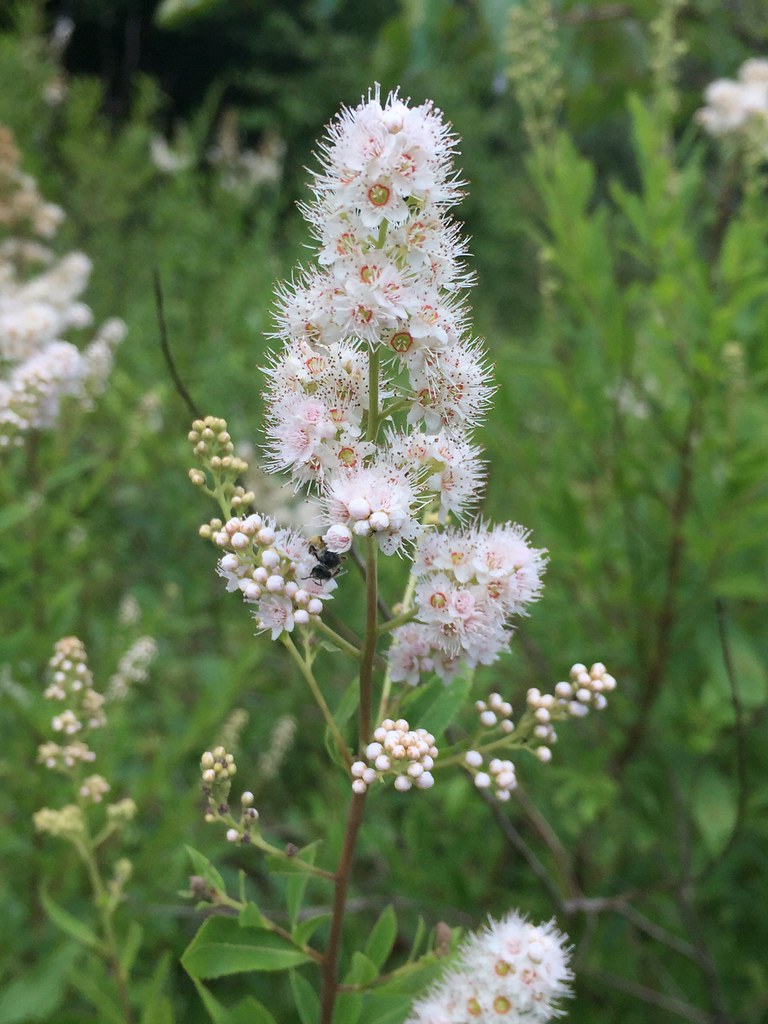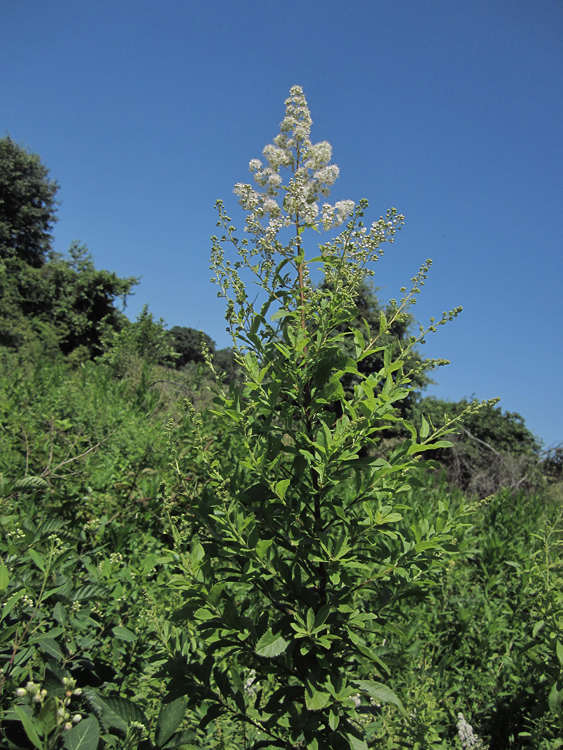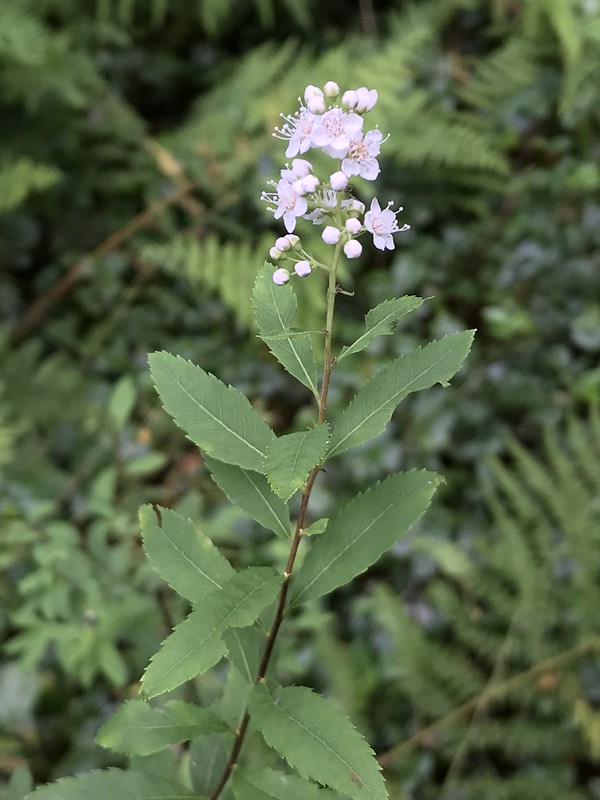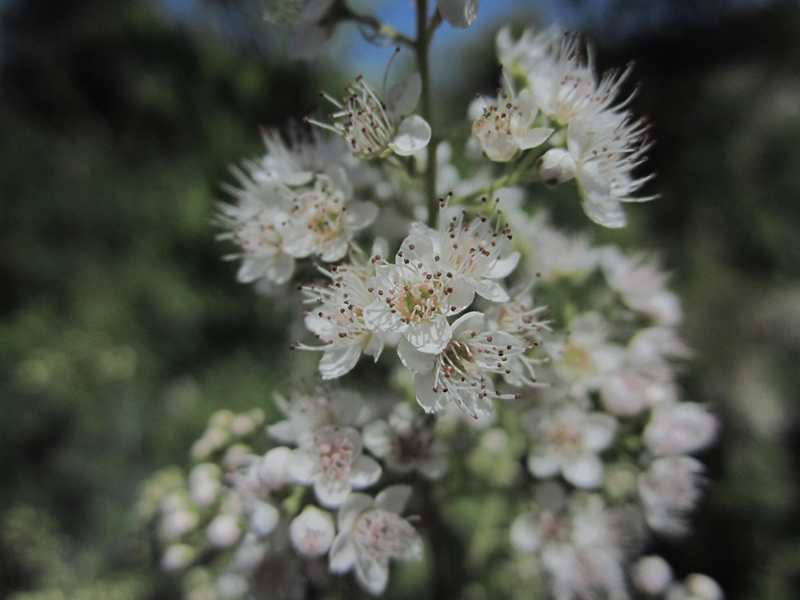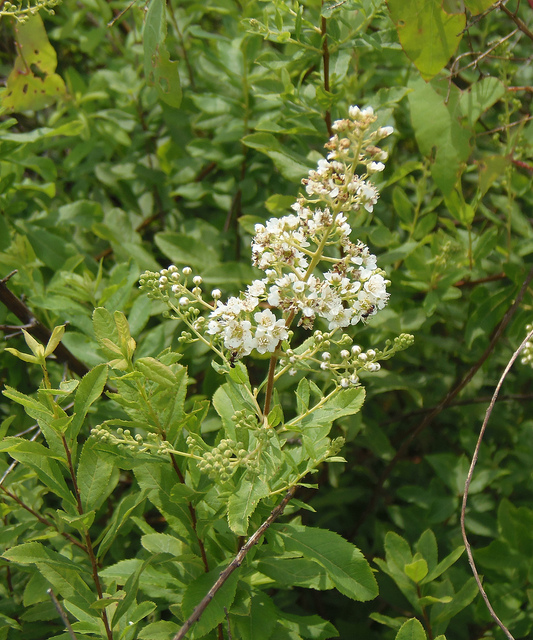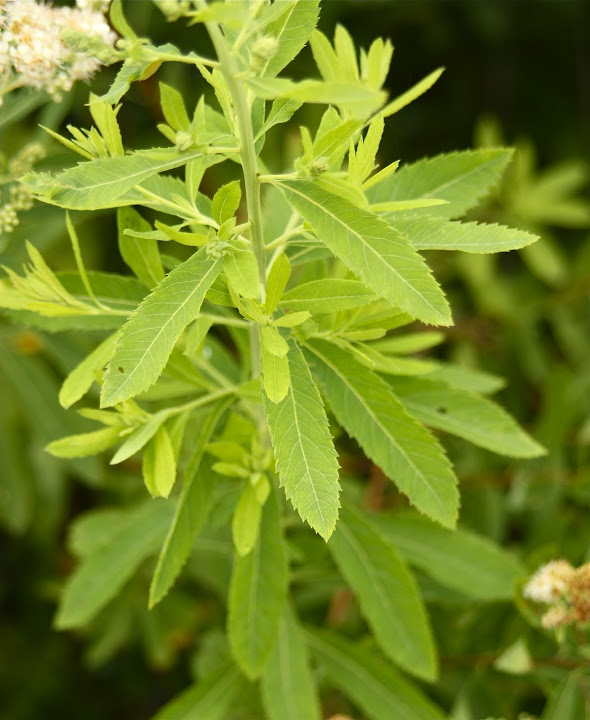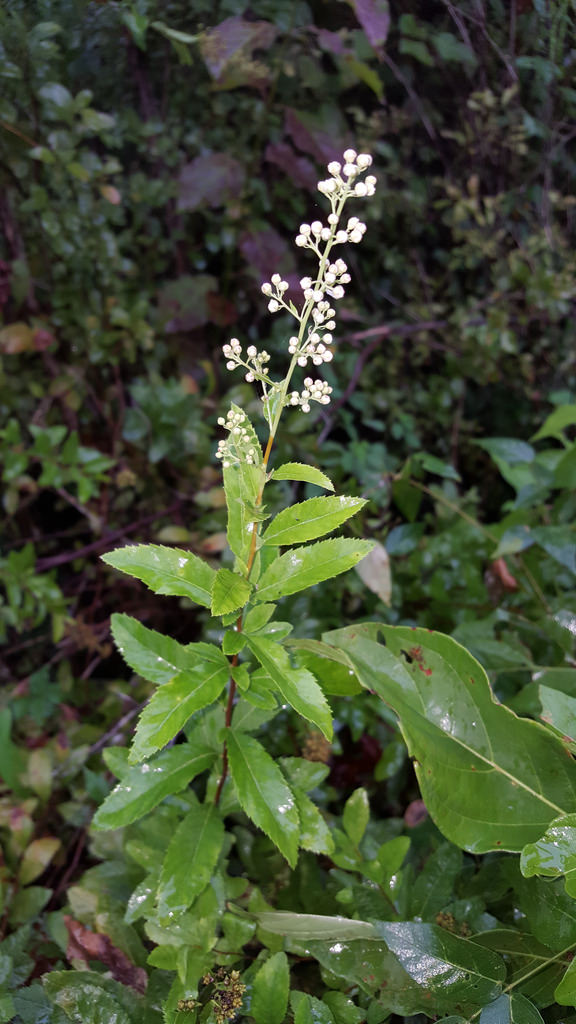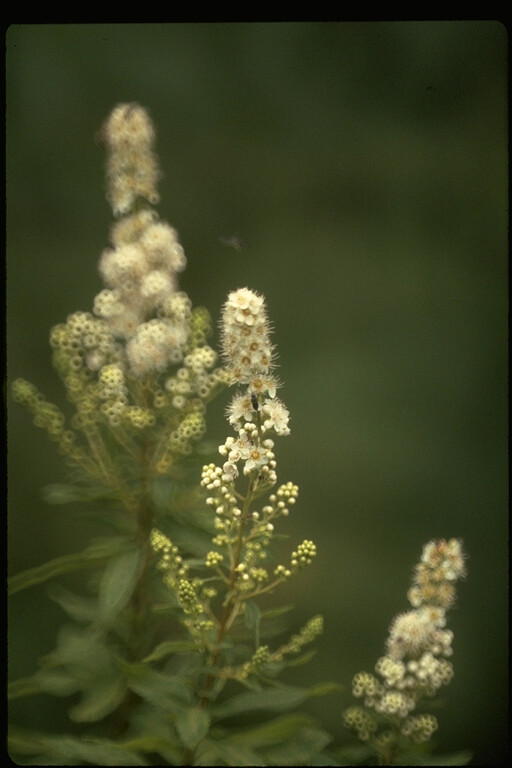Map Snapshot












65 Records
Relationships
Host plant for various moth species including Olethreutes valdanum, Lined Ruby Moth, Dark Metarranthis Moth, Night-wandering Dagger Moth, Great Brocade Moth, Harris's Three-spot Moth, Subdued Quaker Moth, Brown Angle Shades Moth, Norman's Dart Moth, Dot-and-Dash Swordgrass Moth, Cecropia Moth, and Apple Sphinx Moth (Database of the World's Lepidopteran Hostplants, Gilligan, Wright, & Gibson, 2008).
Seasonality Snapshot
Source: Wikipedia
| Spiraea alba | |
|---|---|
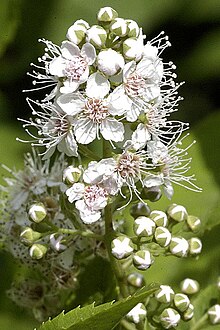
| |
| Scientific classification | |
| Kingdom: | Plantae |
| Clade: | Tracheophytes |
| Clade: | Angiosperms |
| Clade: | Eudicots |
| Clade: | Rosids |
| Order: | Rosales |
| Family: | Rosaceae |
| Genus: | Spiraea |
| Species: | S. alba
|
| Binomial name | |
| Spiraea alba | |
| Synonyms[1] | |
| |
Spiraea alba, commonly known as meadowsweet,[2] white meadowsweet,[3] narrowleaf meadowsweet,[4] pale bridewort,[5] or pipestem,[6] is native to the wet soils of the Allegheny Mountains and other portions of eastern North America,[7] but is currently endangered in the state of Missouri. It is naturalized in other parts of the world.[2]
Description
[edit]Narrowleaf meadowsweet shrubs often reach 8 feet in height with a spread of 3–4 feet. This species is often the most conspicuous part of the vegetation in its habitat, taking up large areas of ground. Its leaves are glossy yellow-green, oblong or lance-shaped, and toothed on the edges, and its twigs are tough and yellowish brown. Fall foliage is golden yellow. The white and sometimes pink fragrant flowers grow in spike-like clusters at the ends of the branches, blooming from early summer through September. The brown fruit, which persists after flowering, is a distinctive feature of all Spiraea species.[8]
Ecology
[edit]Butterflies[9] and other beneficial insects visit the plant for nectar and pollen. In autumn brown seed capsules appear and are fed on by songbirds. Glossy green foliage turns yellow in the fall. Deer tend to leave this plant alone. Meadowsweet is a host plant for the larvae of the spring azure butterfly (Celastrina argiolus).
Uses
[edit]The blooms make a good cut flower.
The hollow, upright stems were used historically as pipe stems.[6]
References
[edit]- ^ "The Plant List: A Working List of All Plant Species". Theplantlist.org. Retrieved June 10, 2014.
- ^ a b "Spiraea alba". Germplasm Resources Information Network. Agricultural Research Service, United States Department of Agriculture. Retrieved 10 June 2014.
- ^ NRCS. "Spiraea alba". PLANTS Database. United States Department of Agriculture (USDA). Retrieved 27 November 2015.
- ^ "Spiraea alba (Narrowleaf meadowsweet)". Cabi.org. Retrieved 30 August 2020.
- ^ BSBI List 2007 (xls). Botanical Society of Britain and Ireland. Archived from the original (xls) on 2015-06-26. Retrieved 2014-10-17.
- ^ a b Yarnell, Richard Asa (1964). Aboriginal Relationships between Culture and Plant Life in the Upper Great Lakes Region. University of Michigan Press. p. 180. ISBN 978-1-949098-22-8.
- ^ Venable, N.J.; Service, W.V.U.C.E. (1996). Common Summer Wildflowers of West Virginia. West Virginia University Extension Service.
- ^ "Photographic image" (JPG). Newfs.s3.amazonaws.com. Retrieved 28 March 2022.
- ^ "Spiraea alba - Plant Finder". www.missouribotanicalgarden.org. Retrieved 2024-11-23.

